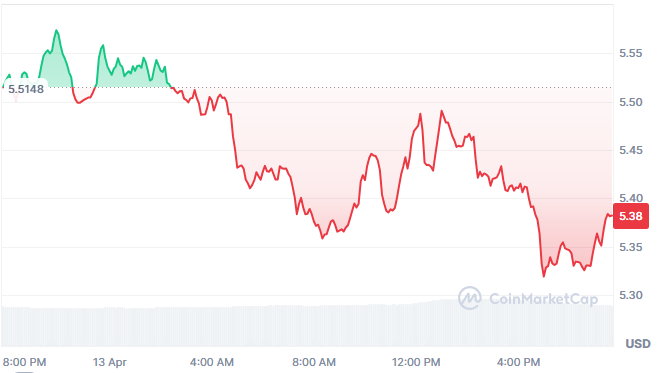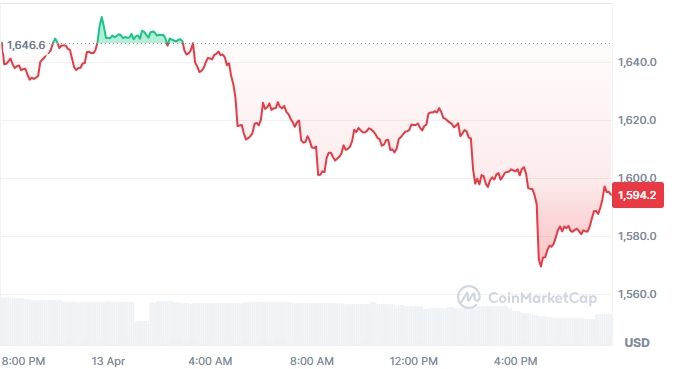- Chainlink enables decentralized smart contracts by connecting blockchains with off-chain data.
- Uniswap’s AMM model has revolutionized decentralized token trading and liquidity provision.
- stETH offers a flexible staking solution, allowing users to participate in Ethereum’s PoS without locking assets.
Binance DeFi Composite Index identifies major protocols of decentralized finance. Chainlink (LINK)) provides secure off-chain data for smart contracts, Uniswap (UNI) introduces AMM model tampering with the token trading paradigm, and stETH allows Ethereum holders to stake flexibly. DeFi’s growth and innovation depend upon these projects.
Chainlink(LINK) Expanding Role in Decentralized Oracles
Source: Coinmarketcap
Chainlink is a decentralized oracle network that allows smart contracts to get secure, real time, off chain data from blockchains. It is an innovative service that allows blockchains to interact with data feeds, events and payment systems on the outside, and it makes it possible for complex smart contracts to work well. Chainlink allows blockchain networks access to accurate, real time information thanks to a decentralized network of node operators to ensure that the information is utility for high impacting decentralized finance (DeFi) applications.
This vital service is supported by Chainlink having partnered with several data providers, including Brave New Coin and Alpha Vantage. Therefore, the network has become one of the most important players in the blockchain space with wide scale adoption in the Defi projects such as Synthetix and Compound.
Uniswap(UNI) and the Growth of Decentralized Exchanges
Source: Coinmarketcap
Uniswap has emerged as an important protocol in the decentralized finance (DeFi) landscape, particularly for automated token trading. Uniswap introduces an automated market maker (AMM) model which allows users to trade tokens without the need of a centralized order book. It is better for liquidity and efficiency compared to previous decentralized exchanges. With the launch of Uniswap V3 in May 2021, the protocol has become a lot different, featuring better capital efficiency for liquidity providers and better execution for traders.
Uniswap has brought about governance token, as UNI; making it possible for the users to participate in the decision-making process regarding the platform’s development. They’ve helped make the Uniswap ecosystem grow with its markets propelling a lot of liquidity to many DeFi platforms and applications.
The Emergence of stETH and Ethereum’s Staking Evolution

Source: Coinmarketcap
stETH is a liquid form of staked Ethereum issued by Lido. Lido offers a decentralized platform allowing users to stake ETH without 32 ETH minimum required by Ethereum. This solution leverages the advantage of Ethereum’s proof of stake (PoS) mechanism to make staking easy, more scalable and without locking of assets/supplies indefinitely.
Furthermore, as stETH can be used in DeFi applications including trading, lending and even collateralization, Ethereum holders now have more flexibility while contributing to the network. However, the growth of stETH demonstrates the growing usage of liquid staking solutions as Ethereum shifts from PoW to PoS.

